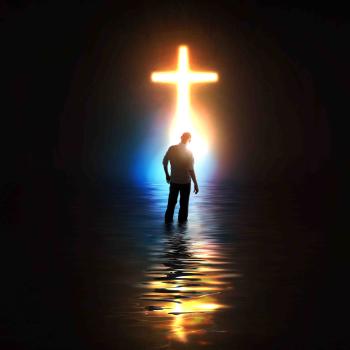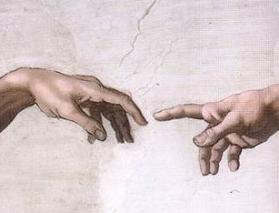Lectionary Reflections
Joel 2:23-32
October 27, 2013
The prophet Joel is a slippery little book. It is three chapters in our English translations, but four in Hebrew. It begins with a potent description of a plague of locusts and the results of their inexorable assault on the fields and trees of the land (Joel 1:1-2:11), followed by an abject cry to YHWH for relief through fasting, weeping, and mourning (Joel 2:12-17), concluded with God’s rich response to their pleas, making their land once again fertile and abundant (Joel 2:18-29). The final chapter is a raw prayer for revenge against some of the enemies of Israel, especially Egypt and Edom (Joel 3:19) whose doom is assured because of the “violence” they brought to the “people of Judah.” It is with some shame that I read this third chapter, since it seems so parochial and narrow-minded in its demands for destruction of Israel’s enemies. I also feel something similar when we baseball fans are bid to stand and sing, often now during the 7th-inning stretch, “God Bless America.” Those words rather stick in my throat, since the implication always appears to me to suggest that God only blesses America, a poor understanding of the God we claim to worship and know. We are perhaps too much like Joel 3 in this.
It is difficult to determine whether Joel really has an insect infestation in mind or merely uses the image of the locusts as a metaphor for the armies of one enemy or another. To be sure, such locust plagues were not rare in ancient Israel, I suspect. Even now in our own time, no one quite knows why, all of a sudden, grasshoppers turn into vast multitudes of flying, crunching, devouring clouds of what we call locusts. After all, locusts are in fact grasshoppers on steroids. And their onslaught can certainly be devastating. I witnessed myself such an event sometime in the 1950s in Phoenix, Arizona, the place of my upbringing. One summer day, out of the usual anvil-like heated azure sky came the sound of whirring and clacking such as I had never heard. The sky was soon filled with this mass of insects, such a mass that the street lights came on at noon, and every place was soon plastered with green/brown “cutters, swarmers, and hoppers,” to use the language of the ancient prophet. Some hours later the mass had moved on, at least some of them, but in their wake we had dead insects several inches deep on the streets and sidewalks of our city. We crunched on the things for days! I remember the astonishing event all too well; even fifty years has not dimmed my memory of it.
It is quite easy for me to see how such an occurrence could breed in ancient peoples all manner of theological reflection. What is God doing to us and why? Why has God allowed these tiny creatures to devour our hard-won crops, to foul our soil and streams, to consume our hopes for the future? Unlike Joel’s prophetic predecessors, he never makes clear exactly why God has done this to Judah. He nearly quotes Amos at least twice (2:2 and 3:16), but while Amos is crystal clear about Israel’s bent toward injustice against the poor that has lead to YHWH’s fierce anger, Joel merely describes the locust plague and its monstrous results without telling us directly why it has come.
Yet, our text for today comes from the more hopeful portion of Joel’s word. God has apparently heard the wailing and fasting and mourning of the people in the light of the locusts and has responded with “early and abundant rain,” with “threshing floors full of grain,” with “vats overflowing with wine and oil” (Joel 2:23-24). The years of the plague of locusts have ended (Joel 2:25—YHWH names the locusts “my great army, which I sent against you” (Joel 2:25c). The fact that the prophet designates the time of the locusts as “years” suggests to me that the locusts are in fact metaphors of the wave of foreign armies that swept through the land of Judah, beginning with the Assyrians late in the 8th century B.C.E. until the final destruction of Judah in 587/586 B.C.E. by the Babylonians. It has proven notoriously difficult to locate the words of Joel historically, but this reasoning suggests a post-exilic provenance for this prophet.
After the years of the “locusts,” the enemy armies, end, YHWH will prove by great deeds that “I am in the midst of Israel, and that I, YHWH, am your God and there is no other. My people shall never again be put to shame” (Joel 2:26). And because YHWH is now for certain in Israel’s midst, the extraordinary words of 2:28-29 follow (in Hebrew 2:28-29 is 3:1-2). These words bore such resonance for the people that they were remembered and repeated by Luke’s Peter in his Pentecost sermon hundreds of years later.
Afterward, I will pour out my spirit on all flesh;
your sons and your daughters shall prophesy,
your old men dream dreams,
your young men see visions.
Even on male and female slaves, in those days, I will pour out my spirit.





